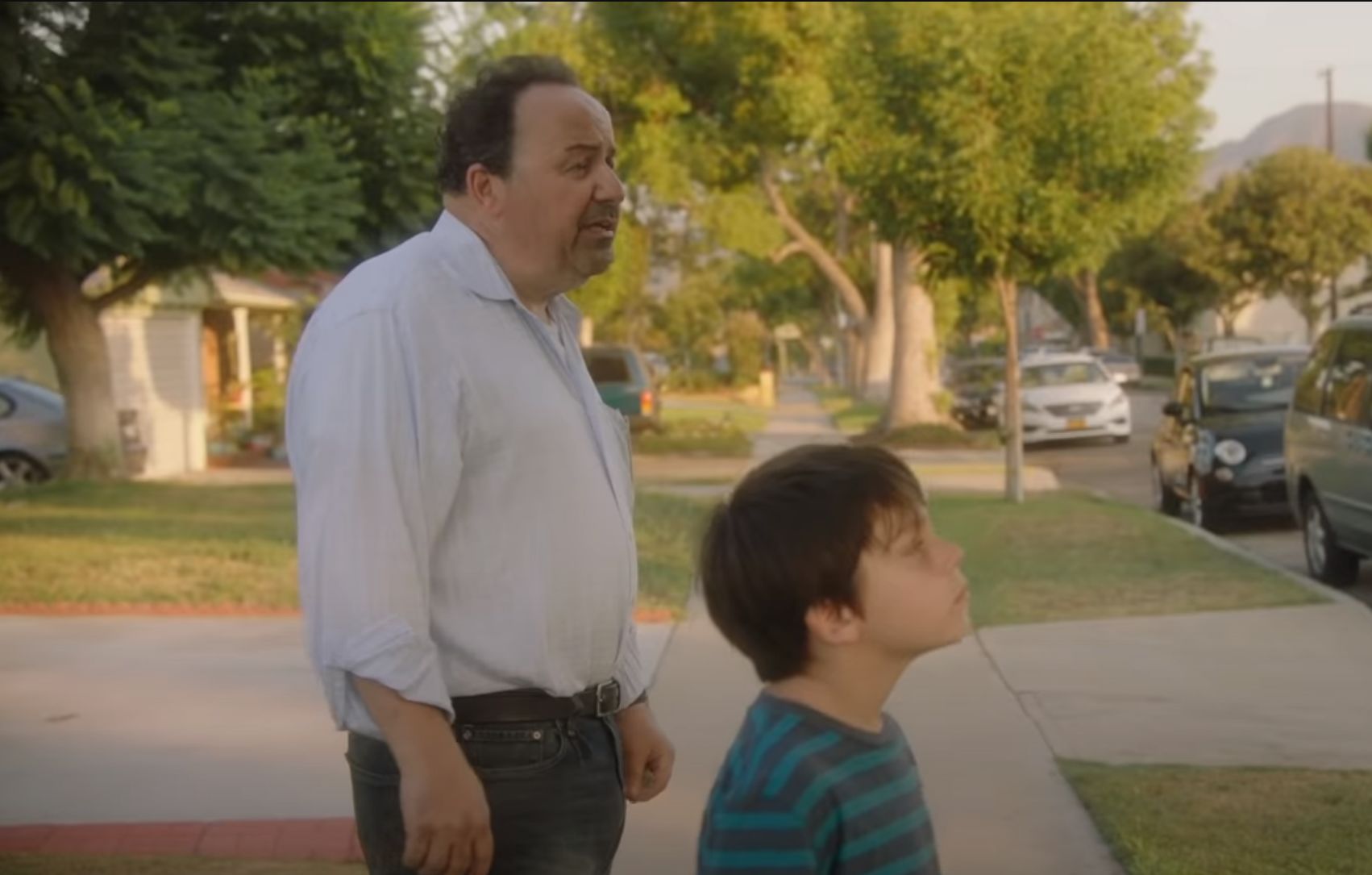Jack is visiting his father Richard in prison for the first time since Richard was locked up. Their visit is ostensibly pleasant at first, as the two men catch up after a long time not seeing one another.
As Jack listens to his dad talk about life in prison and his plans for when he gets out, the son remembers key moments of his relationship with his dad, until reaching a point of confrontation on just why he’s in prison, to begin with.
Well-acted, sensitive and ultimately compassionate in feeling, this short drama, written and directed by co-star Josh Zuckerman, has an eye and ear for ordinary yet resonant emotions and relationships. Alert to how small yet telling details reveals worldview and character, the story details a shift in how a son views his father, and where their relationship could go in the future.
Rendered in a low-key, naturalistic style, this kind of storytelling leans on beautifully delineated writing and performances to generate interest and hold attention. The dialogue here is excellent, specific to each character and what they reveal and hide in their words and actions. It sets up Richard as a caring, involved dad at first impression, someone who loves to share his thoughts and knowledge with his young son.
But he’s also quick-talking, a little glib, full of schemes — definitely a dreamer, and perhaps a little delusional about himself and reality. Though it’s never fully explicit about what happened at first, we get hints that it was this penchant for both self-delusion and grandiosity that got Richard in legal trouble to begin with.
Actor Michael Laskin portrays this tension with both warm presence and subtle feeling, showing that this fault emerges out of his clear desire to do his best for his family. But Richard lacks a core of essential self-awareness to know the difference between right and wrong and perhaps isn’t being entirely honest with himself about his failings as a human and a father.
Jack is more reserved and observant — especially in the face of his dad’s garrulous nature — though it’s clear from the flashbacks that the bond between child and parent was strong. Zuckerman is able to capture the clear love between the two but also flickers of skepticism, and many times Jack is often holding back what he really wants to say.
The writing’s weaving of past and present can be a difficult structure for short films to pull off, but it works here because it’s yoked to the son’s interior experience. The structure captures how certain lines or feelings in the present evoke past resonances; a relationship never exists in just the present tense. When Jack finally speaks out, it disrupts Richard’s fantasies, and the son finally unloads the great emotional burden that’s been building — something years in the making.
“A Real Adventure” ends with Jack’s own fantasy, one that seems to integrate the highs and lows of his relationship, and he ends by seeing his dad for what he is — a flawed human being, with gifts and faults like anyone else. It is a journey that most children will take with their parents, as mothers and fathers go from being almost god-like figures to people just struggling with life. Sometimes this shift brings a disillusionment that neither parent nor child can come back from. But sometimes it can enrich and deepen a relationship and a bond, as acceptance becomes the foundation for moving forward.




